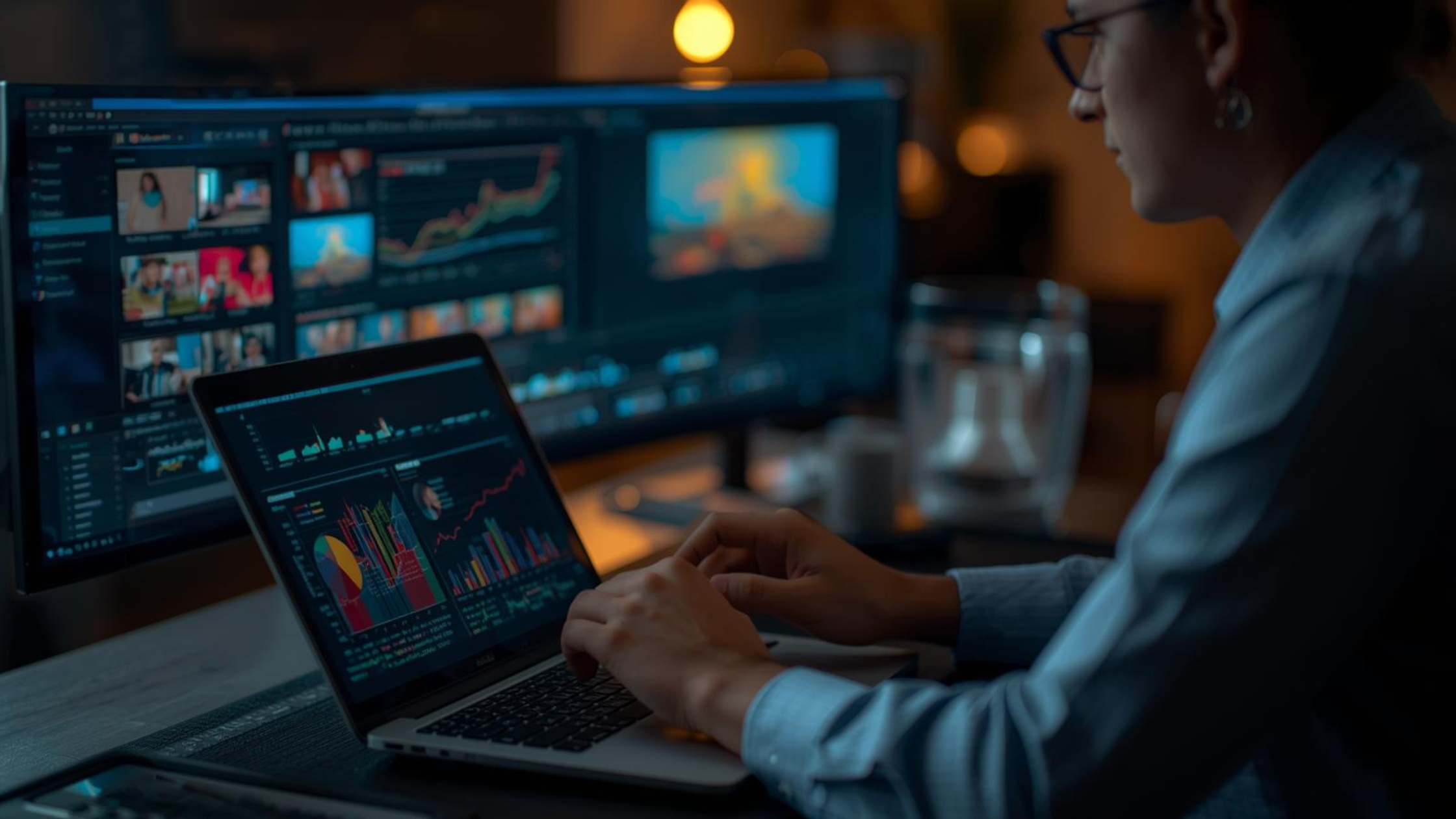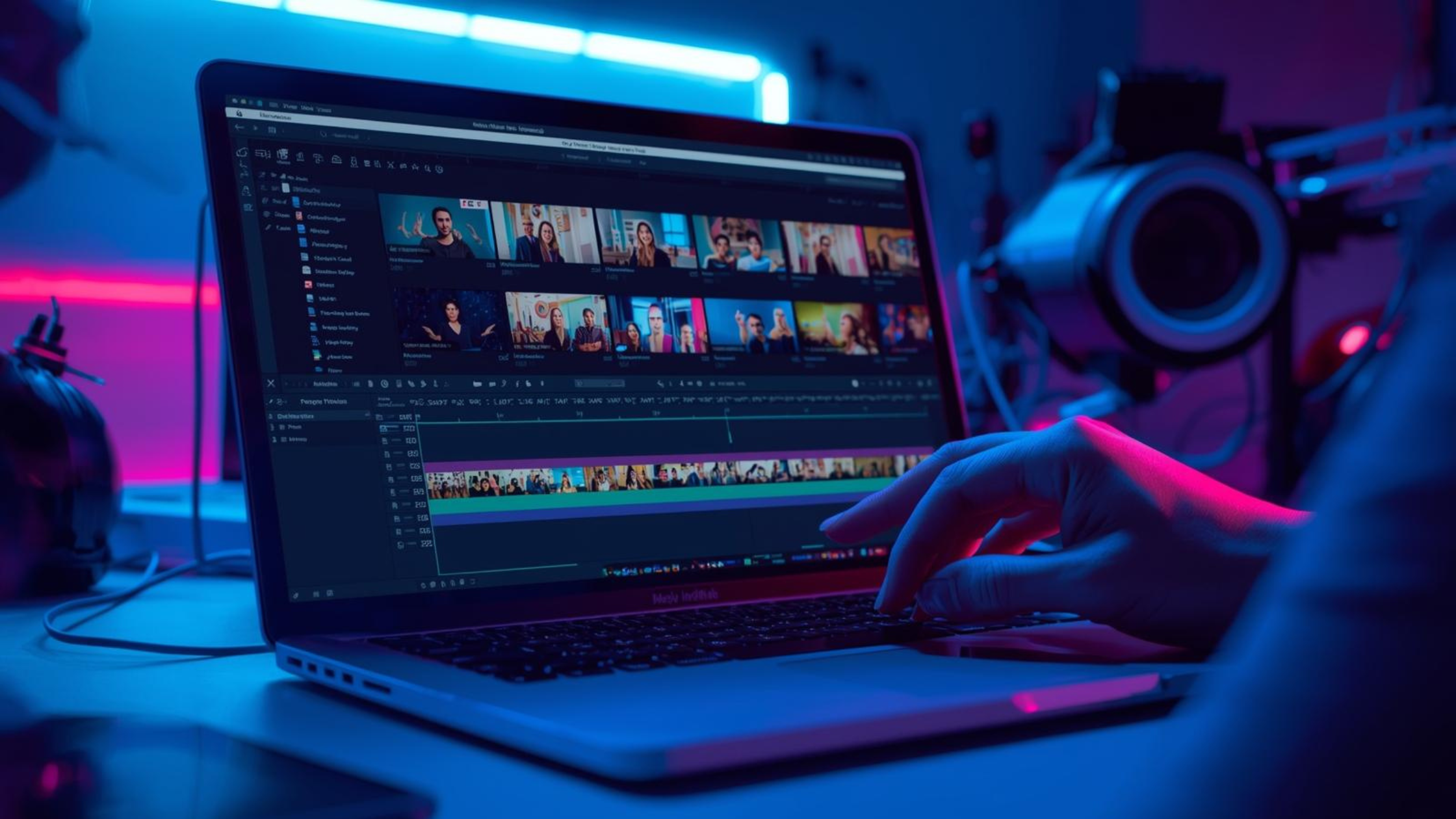How AI Is Transforming Video Marketing for Law Firms
For years, law firms have relied on word-of-mouth, referrals, and well-written websites to bring in new clients. But today, one medium stands out as the most powerful way to build trust, explain complex ideas, and show expertise at scale, video.
And now, artificial intelligence (AI) is quietly reshaping how law firms approach video marketing. It’s not about replacing creativity or removing the human touch, it’s about making smart use of technology to tell stronger, more impactful stories.
In this guide, we’ll explore how AI is transforming the way law firms plan, create, and analyze video content ,and what this shift means for the future of legal marketing.
The New Era of Legal Marketing
Clients no longer choose a law firm based solely on who’s closest or who advertises the most. They choose based on who they trust , and trust is built through visibility, clarity, and authenticity.
Video gives law firms an opportunity to do all three. Whether it’s explaining how a legal process works, introducing an attorney, or sharing client success stories, video helps firms communicate in ways that feel real and relatable.
What AI brings into this mix is efficiency and insight. It can streamline the creative process, offer data-driven guidance, and help firms stay consistent without overwhelming their teams.
Where AI Fits in the Legal Video Marketing Process
AI isn’t just a tool for tech companies , it’s becoming an everyday part of how professional firms market themselves. For law firms, AI shows up across several stages of the video process:
- Idea Generation – AI can analyze trends and topics your audience actually cares about, helping your firm focus on the most relevant subjects.
(We’ll explore this further in our blog: “How Law Firms Can Use AI Tools to Generate Video Ideas That Convert.”) - Content Strategy – AI can predict what types of videos perform best (educational clips, FAQs, testimonials, etc.) and when to post them.
- Production & Editing – AI speeds up editing workflows and automates time-consuming tasks , so teams can focus on storytelling instead of logistics.
(See our related article: “The Role of AI in Streamlining Law Firm Video Editing Workflows.”) - Optimization & SEO – With AI-powered analytics, firms can understand how viewers engage with content and continuously improve results.
(Covered more in: “The SEO Edge: Using AI to Optimize Law Firm Video Content.”)
The goal isn’t to replace creative teams, it’s to make their work more precise and intentional.
AI Helps Law Firms Build Authority Faster
Think of every video your firm posts online as a small piece of your digital reputation. Over time, those pieces add up to something powerful, authority.
AI helps accelerate that process by giving insights that used to take weeks or months to gather. For instance, it can identify which topics attract the most engagement in your market, whether viewers drop off early in a video, or which calls-to-action convert best.
For law firms, where credibility matters more than clicks, this kind of intelligence helps shape messaging that resonates, without losing the integrity of the profession.
AI Makes Legal Videos More Accessible and Inclusive
Accessibility is no longer optional in digital marketing. With AI-driven transcription and captioning tools, firms can make every video more inclusive, reaching not only more potential clients but also improving SEO performance at the same time.
Accurate captions help your content appear in more searches and ensure your message reaches everyone, including those with hearing impairments or who prefer watching videos without sound.
(We’ll dive deeper into this in “How AI-Powered Transcription Improves Accessibility in Legal Videos.”)
Balancing Ethics and Automation
Law firms operate in one of the most regulated industries in the world. So, understandably, there’s a healthy amount of skepticism when it comes to using AI.
The key is balance, embracing what AI can do while keeping strict ethical standards in place. AI can help you plan smarter or edit faster, but only humans can ensure accuracy, context, and compliance with legal advertising guidelines.
This is why the most successful firms treat AI as a creative partner, not a replacement for human oversight.
(We’ll cover this in more detail in “Maintaining Ethics and Accuracy in AI-Generated Legal Content.”)
How AI Personalization Builds Client Trust
Trust is the foundation of any client-attorney relationship. And AI can enhance that trust by helping firms deliver more personalized experiences through video.
Imagine a potential client watching a video that speaks directly to their type of case or location, automatically personalized to their needs. Or follow-up videos that address their specific questions based on what they’ve previously viewed.
That’s the direction AI personalization is moving toward, more meaningful, human-feeling communication at scale.
(You’ll see more examples in our post, “How AI Personalization Can Strengthen Client Trust in Legal Videos.”)
Data-Driven Decisions: The Rise of AI Video Analytics
Before AI, measuring the effectiveness of video marketing was mostly guesswork. Now, with AI analytics, law firms can pinpoint exactly what’s working, and what isn’t.
These tools can track metrics like viewer engagement, topic interest, and even emotional response. For attorneys, that means knowing which topics resonate with clients and which may need reframing.
The beauty of this approach? Every decision becomes data-informed, not assumption-based.
(See “AI Video Analytics: Understanding What Works for Your Law Firm” for deeper insights.)
Preparing for the Future of AI in Legal Marketing
AI is advancing quickly, but it’s not just about speed. It’s about potential. The next few years will likely bring even more sophisticated ways to create, customize, and analyze video content.
For law firms, this means an opportunity to stay ahead of the curve and connect with clients in ways that feel more human, not less.
Firms that embrace AI early will have a strong advantage in visibility, reputation, and efficiency.
(Our blog, “The Future of AI in Legal Video Marketing: Trends to Watch in 2026,” explores this in more detail.)
What This Means for Your Firm
Incorporating AI into your video marketing strategy doesn’t mean your firm has to become a tech company. It means leveraging smart tools to tell your story more effectively, with less guesswork and more consistency.
Think of AI as an accelerator, one that helps you communicate faster, reach more people, and maintain the same professional standards your firm is known for.
If your firm is serious about reaching clients where they are, on social media, YouTube, and beyond, AI-driven video marketing isn’t just a trend. It’s becoming the standard.
Final Thoughts
Artificial intelligence is reshaping every industry, and legal marketing is no exception. Law firms that use AI strategically will find themselves producing more relevant, more engaging, and more trusted content, without adding complexity to their workflows.
As this technology continues to evolve, it’s less about what AI can do, and more about how firms choose to use it, thoughtfully, ethically, and creatively.
If your firm is ready to explore smarter, AI-driven ways to create meaningful video content, schedule a call with us, let’s talk about what’s possible.
.png)
.png)







